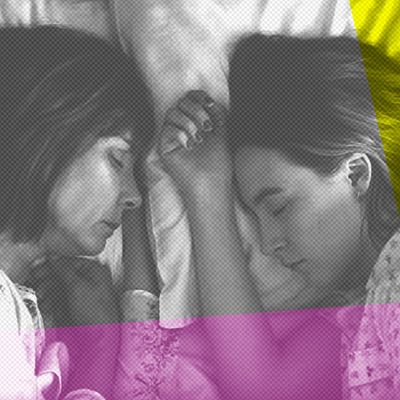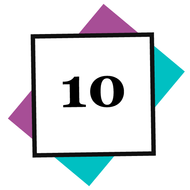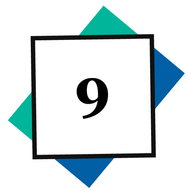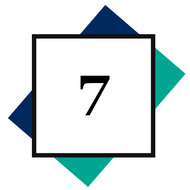
Over the next few weeks, Vulture will be publishing our critics’ year-end lists. Today, we’re looking at the best movies that’ll make you want to call your mom.
There’s a particular rhythm to the way mothers and daughters relate to one another: How you can love your mother but not like her, how it’s possible to desperately need her as you fantasize about living without her. A significant number of 2017’s movies get that rhythm exactly right. Lady Bird gets at that teenage ambivalence, the kind that makes you fuss and throw tantrums one week and crawl onto the couch, resting your head on her lap the next. Three Billboards tells the other side of the story, the one where a mother’s whole life — and ferocious anger — is shaped by her daughter’s absence. I, Tonya bubbles with maternal cruelty and sarcasm. The Big Sick and The Florida Project both feature tough, challenging moms at their center, to wildly different results. And Call Me by Your Name’s summer romance ends with a mother gently whispering her son’s name, beckoning him to their dinner table.
The first time I saw Lady Bird, I called my mom. Then I texted my favorite aunt. That weekend, I dialed up both my grandmas too — just to be safe. The third time I saw Lady Bird, I called my mom again, and she sighed, “Girl. Again?” Rather than continue to stalk my family members, I’ve channeled those feelings into the below list: 2017’s most mom-heavy movies, ranked by how much they’ll leave you wanting to call your own mom. The criteria is simple: movies ranked by how totally grateful they make you feel about being gifted (or cursed) with a passionate, glorious, complicated mother.

Mother!
Darren Aronofsky’s bacchanalia of biblical references begins with Jennifer Lawrence and Javier Bardem, a married couple renovating a mansion far removed from the bustle of the outside world. He’s a famous writer; she’s a dutiful housewife, pregnant with their first child, tending to their home. Things go south in their two-story paradise when uninvited guests arrive — among them, an amiable Ed Harris, icy Michelle Pfeiffer, and loosey-goosey Kristen Wiig — and J.Law’s painstakingly built idyll is desecrated.
There’s no mother-child tension in Mother! (just tension between literally every other character). But something horrible happens to a baby (you’ll have to see the movie to figure out exactly what), and, according to Aronofsky, the entire film is about what happens when we take our Mother Earth for granted. Mother! is such a wild fever dream that you’ll leave with your head spinning, wondering what, exactly, Darren Aronofsky had been smoking in 2016. It won’t have you phoning your mom for life advice or to reminisce on your childhood, but it’ll have you’ll waking her up in the middle of night just to talk about what the hell you just watched — and how to figure out if your sink is braced, because that’s definitely something she’ll know.

Girls Trip
The “Flosse Posse” — Queen Latifah, Jada Pinkett Smith, Regina Hall, and Tiffany Haddish — are making their pilgrimage to the Essence Fest, part family reunion and part wild spring break. The women aren’t as close as they were in college, so the trip is their big chance to reconnect.
These aren’t 20-somethings or frat boys having the fun: They’re black women over 35, some of them moms. But instead of falling into the stereotypes about what kind of fun moms over 35 have — bingo and a glass of Prosecco before bed — Girls Trip is endlessly surprising, inspiring belly laughs from the first time Haddish blesses your ears with her pronunciation of “bootyhole.”
Remember on Atlanta, when Lakeith Stanfield said, “Moms need to enjoy rap, too”? These women let loose, talk about breakups and (fruit-assisted) blow jobs, get blackout drunk, hit on celebrities — the works. You’ll want to call your mom after watching this, but instead, let her have fun and laugh at Tiffany Haddish in peace.

Landline
It’s the 1990s in New York City, and Alan Jacobs (John Turturro) has secretly been cheating on his wife, using the family’s desktop to write love poems to his girlfriend. One of his two daughters finds out his secret: Ali (Abby Quinn), the younger one, an angsty teen who sneaks out at night and talks back to her mother, Pat (Edie Falco). Meanwhile, Dana (Jenny Slate), the older one, finds herself disenchanted with her job and boyfriend (Jay Duplass), going through a bit of a quarter-life crisis.
Landline is best when the Jacobs family women are together, plotting their next move. When the daughters are together, combing over evidence of Dad’s affair, they get too drunk and air out their commitment phobias. When the duo plus Pat collapse on the family apartment bathroom floor at the end, they’re puffing cigarettes and putting Alan’s affair and their own foibles back into perspective. These women fight and love cynically and fiercely, and they’ve learned it all from each other. Landline demonstrates, empathetically, that moms aren’t always on-time superwomen in yoga pants and sensible shoes — they take on different roles for everyone, all while dealing with their own shit. “When was the last time you or anybody in this house even looked at me?” Pat asks her husband in a particularly tragic moment. Suddenly, her strain snaps into focus: She doesn’t get to flail or have a crisis of confidence, because no one else’s life works without her effort. This one will make you want to call your mom and ask her about her day — and about her life. (And maybe give her some alone time, too.)

Three Billboards Outside Ebbing, Missouri
Resplendent in a revenge onesie and an undercut, Frances McDormand is Mildred Hayes, an understandably enraged woman trying to push the police to find her daughter’s murderer. “Raped While Dying,” “And Still No Arrests?” “How Come, Chief Willoughby?” read the drama’s titular billboards, purchased and put up by Mildred in a moment of sheer desperation. And yet, a single flashback shows us what kind of mother Mildred was during her daughter Angela’s life: They fought bitterly, with Mildred sneering disses about Angela staying out too late, and both calling the other “cunt” and “bitch.”(White people talk to their parents so crazy.)
Soon, it’s clear that Three Billboards’ protagonist’s obsession with finding the guilty party is a coping mechanism meant to offset her deep grief. “You’re not trying to make me believe in reincarnation, are you?” Mildred says when a deer approaches her as she tends to flowers under the billboards. “Because you’re pretty, but you ain’t her.” This one will make you call your mom and apologize for all that back talk — and maybe buy her a kickass jumpsuit.

Mudbound
The first half of Dee Rees’s sprawling southern epic tells the story of two mothers: Laura McAllan (Carey Mulligan) and Florence Jackson (Mary J. Blige). The Jacksons are tenant farmers on the McAllan’s muddy land, two families stranded on the outskirts of town, their fates intertwined. Life in the country is relentless, and for the Jacksons — who are trying to save enough money to buy their own land in the racist South — getting ahead feels impossible. When Laura’s daughters come down with whooping cough, she invites Florence to work for her during the day, helping her with the girls and around the house.
Florence’s husband, Hap (Rob Morgan), is hyperaware of how one setback can slip his family into indentured servitude, and doesn’t like his wife working for Laura. But there’s an important kinship between these women as mothers. It’s Florence’s little sacrifices that will have you texting your mom with your Netflix password: The way she prays steadfastly for her son away at war; the way she worries about his future, wondering if he’s hanging around the family farm for his father’s benefit and not his own; how she gave up time with her own children to make money raising someone else’s. This is stuff moms literally do all the time — call yours, because she’s doing a lot of shit that you never see.

I, Tonya
“But I don’t have a wholesome American family,” Tonya Harding (Margot Robbie) admits to a figure-skating judge, after he explains that her working-class image is stopping her from winning the gold medal her skating deserves. Instead, Tonya has LaVona (Allison Janney), a mother more threatening than nurturing — a boozed-up, chain-smoking terror. She barks criticisms from the skating-rink bleachers, and nearly skips her daughter’s wedding. She’s the most obvious example of why Tonya’s future was compromised long before Nancy Kerrigan’s kneecaps were busted.
LaVona and Tonya’s relationship is devastatingly dysfunctional, a millennial’s Mommie Dearest: LaVona sneers at her daughter, makes her pee on the ice, sticks her with a steak knife during dinner. Even still, Tonya loves her mother and seeks her approval. Allison Janney’s performance is good, but the mother-daughter resentment feels particularly real — sometimes that love is prickly and laced with condemnation and bitterness. But I, Tonya will make you want to call your mom immediately, with gratitude that those hateful spells rarely last — because she could’ve really messed you up.

The Big Sick
Holly Hunter doesn’t even hiss a hello when she meets Kumail Nanjiani in The Big Sick. Instead, she offers an icy “we know who you are” to the guy who broke her daughter’s heart. Emily’s (Zoe Kazan) medically induced coma means that Kumail, his ex, and Emily’s parents Terry (Ray Romano) and Beth (Hunter) are stuck on a merry-go-round of waiting rooms and doctor consultations, waiting for Emily’s life-threatening infection to heal. And where Terry is the goofily out-of-touch dad, Beth is the ferocious mama bear: No, Kumail can’t sit with them; no, he can’t wait with them; wouldn’t it be better if the Uber-driving comedian that lied to her daughter for all those months just went home?
Beth’s frostiness thaws when a racist heckler interrupts Kumail’s stand-up set. Her brow furrows as the douche yells something racist and she springs into action. She falls into mothering Kumail like it’s a habit. This is her default mode, where she feels most comfortable. Beth is so used to this advice-giving and nurturing that it becomes its own salve. She lashes out and fidgets, giving us a moving vision of a mother’s worry. Call your mom, because she fights with you and for you — and doesn’t take anyone’s shit.

The Florida Project
The Florida Project’s vivid, cotton-candy-colored world doesn’t give us a sense of where its mother and daughter called home before they ended up in one of the motels at Disney World’s outskirts. Moonee and Halley (Brooklynn Prince and Bria Vinaite) are almost exactly alike, running wild, reckless in different ways. The 6-year-old outruns her friends’ more strict mothers, and Halley avoids hotel manager Bobby’s (Willem Dafoe) well-meaning glare. Sometimes it seems like they’re two girls, raising one another: Even when she doesn’t know who to trust or what to do, Moonee can sense when something isn’t quite right; Halley rams headfirst into the most minor conflicts — badgering Bobby for counting her rent money, picking a fight with her best friend — just to feel a little more in control.
Most times Halley is wildly irresponsible. But there’s a sense that she’s nurturing Moonee in the only way she knows how: with pancakes and pizza and dollar-store shopping trips she can’t afford. She’s an awkward, unreliable mother, but it’s not up to The Florida Project to decide whether she’s unfit. Her mothering involves nodding at Moonee’s wild, 6-year-old ramblings and taking the heat for her daughter’s hijinks. Friendly reminder: Your mom did that stuff, too.

Call Me by Your Name
True to the adaptation of André Aciman’s novel, Call Me by Your Name is mostly a story of men: the kinship between male lovers, the romantic narcissism of gay men, and in one final moving monologue, advice from fathers to son. But it’s also a subtle love letter to maternal empathy.
Elio (Timothée Chalamet) and Oliver (Armie Hammer) fall in summer love “somewhere in Italy in the early 1980s,” and their summer of languorous bliss comes to an inevitable end. After Oliver departs for his return to America, Elio hangs around the train station until he can no longer sit with his own heartbreak. Amira Casar, playing Elio’s mother, doesn’t get the third-act monologue like Michael Stuhlbarg does. But she’s who Elio calls when he can’t hold back his tears. He can’t bear to wait for the next bus or train to deliver him back home, so he ducks into a phone booth and dials his house number. “Mom?” he whimpers Italian. “Can you come pick me up?” When he asks, he breaks into sobs.
Cut to their drive home, a small scene of nothing short of the gentlest kind of rescue mission. Elio cries in the front seat. His mom gently rubs his shoulder, not enough to signal that she knows something, but enough to show she cares. Once Elio gets home, he and his dad talk over his buoyant romance, and Call Me by Your Name winds down with an idea that’s tough for anyone, much less a 17-year-old, to wrap their minds around: the idea that their parents have vibrant, interesting inner lives. This one will make you want to call both parents and ask about things they’ve never told you.

Lady Bird
Christine “Lady Bird” McPherson (Saoirse Ronan) and her mother Marion (Laurie Metcalf) spar viciously through Lady Bird. Out of fear and frustration, they fall into one endless argument about the kind of future Lady Bird will have. Marion is worried her flighty, neurotic daughter will waste the life her parents have slaved to provide; Lady Bird is terrified she’s doomed to live in the mediocre Midwest forever.
Gerwig said some moneymen were surprised by the mother-daughter squabbling: “I was talking to different financiers about putting money into the film and making it. And most of those people are men. And if they were raised with sisters or if they had daughters, they knew what it was,” she told Terry Gross. “But if they didn’t, they had no idea that that was how women fought — and how they loved, too. I think it was kind of like they were getting to look into a world that they didn’t know existed.” Girl, does it ever. Lady Bird is unapologetically girly, and concerned about girlhood, which comes part and parcel with slamming doors and rolling your eyes and fighting with your mom.
But by the time Lady Bird jets off to NYU, the movie’s final, heartwarming conclusion absolutely demands that you call your mother. Call your mom and tell her you’re sorry — for being a brat, or for not coming home enough. Call your mom and thank for every second she put up with you as a rebellious, angsty teen. Apologize for that time you resented her for not being as cool as that other kid’s mom, all those time you borrowed her keys, or lost her favorite gloves. Call your mom and thank her for building a whole luminous life in a beautiful, imperfect place, and then thank her again for raising you in it. And, if you need to, call your mom and tell her you forgive her for when she gave you the silent treatment, when she snapped at you because she was afraid for you, or when she doubted you. Or just put it the same way Lady Bird does, when she finally makes this call herself: “I love you. Thank you.”


